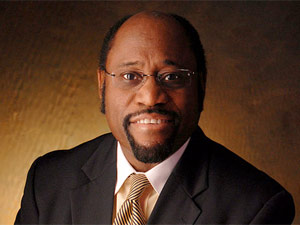 In a world that has become largely materialistic and which has all but lost the sense of sin, most believers today presume upon God’s mercy that when they, their friends and relatives die they immediately go to heaven. Forgetting God’s justice they place little or no importance on purgatory or the many souls that go there.
In a world that has become largely materialistic and which has all but lost the sense of sin, most believers today presume upon God’s mercy that when they, their friends and relatives die they immediately go to heaven. Forgetting God’s justice they place little or no importance on purgatory or the many souls that go there.
On the basis of the definitive option for or against God, each human being is faced in this life – a time of trial – with the choice either to live with the Lord in eternal beatitude, or to remain far from his presence. Between these extremes are those souls who are neither estranged from God nor wholly dedicated to him.
For these, when they die, there exists purgatory. On the day of judgement the value of each person’s work will be revealed: “If the work which any man has built on the foundation [which is Christ] survives, he will receive a reward. If any man’s work is burned up, he will suffer loss, though he himself will be saved, but only as through fire” (1 Cor 3: 14-15).
Pope John Paul II tells us that purgatory does not indicate a place, but a “condition of existence” whereby the souls who depart this life in the grace of God suffer for a time because they still need to be cleansed from venial sins, or have still to pay the temporal punishment due to mortal sin, the guilt and eternal punishment of which have been remitted. In keeping with the Gospel that exhorts us to be perfect like the heavenly Father (cf. Mt 5: 48) every trace of attachment to evil must be eliminated, every imperfection of the soul corrected.
The saints and doctors of the church tell us that the sufferings of those in purgatory are far greater than we can imagine in this life. The chief reason being the pain of loss – or separation from God.
The souls in purgatory have only one desire, to be with God in heaven. The temporary frustration of that desire is for them the cause of most intense suffering. Further, they know that their separation from eternal Love has been through their own fault and they understand, in a degree previously impossible, what joy they might have enjoyed had they avoided sin or made more satisfaction on earth for the sins they committed.
It is reasonable then that we should, in union with the saints in heaven, do all in our power to help these suffering members of the mystical Body of Christ.
In the first place, helping the Holy Souls promotes the honour and glory of God. He longs for them to come to Him; they were made for Him and it is their destiny to live with Him in infinite bliss forever. When we, by our prayers (like the rosary), penance, sacrifices, pious visits to cemeteries, fasting, indulgences, and other good works, aid these suffering souls, we enable God to bestow on them sooner the direct sight of Himself.
Secondly, prayer for the dead is one of the great spiritual works of mercy. If helping people in their bodily needs is blessed by God how much more so will God be pleased by the spiritual assistance given to souls who cannot help themselves? Most especially through the offering of the Holy Mass we can relieve the suffering souls of grievous torment and help to clothe them with the garment of glory. Through the Sacrifice of the Holy Mass our Lord continuously offers what he offered on the cross – his death, the sacrifice of his life, his body and blood delivered up and shed – for atonement to God and for the redemption of man.
Thirdly, every good work done for God earns its own reward (Matt. 10:42). Further, when souls are released from purgatory through our help on earth, they cannot forget the latter before the throne of God. Helping the Holy Souls, therefore, is a sure way of obtaining the special intercession of the saints.
We who have sinned know too well how disordered is our whole nature. And since we find ourselves always or nearly always in this state, it is reasonable to think that most of us will still be in this state when death comes. We too will likely be in purgatory.
“It is a holy and wholesome thought, to pray for the dead, that they may be loosed from sin”(2 Mach. 12: 46). As good Catholics let us then seek earnestly and always to help those souls detained in purgatory.
By Paul Kokoski


